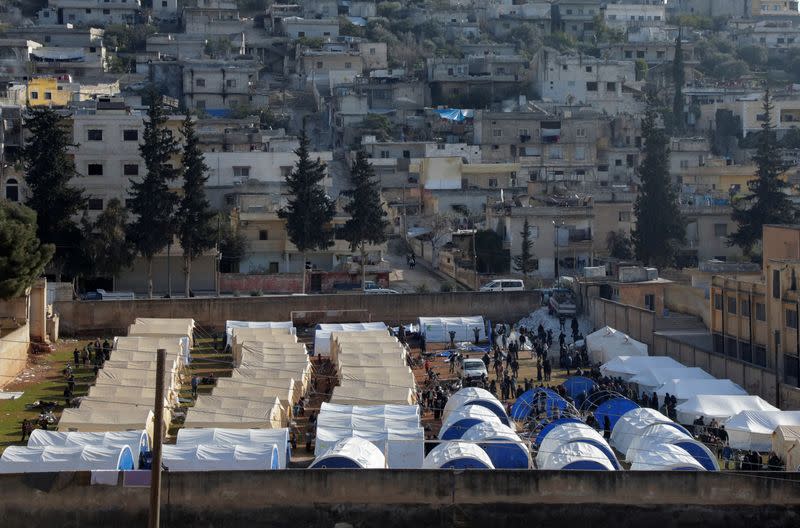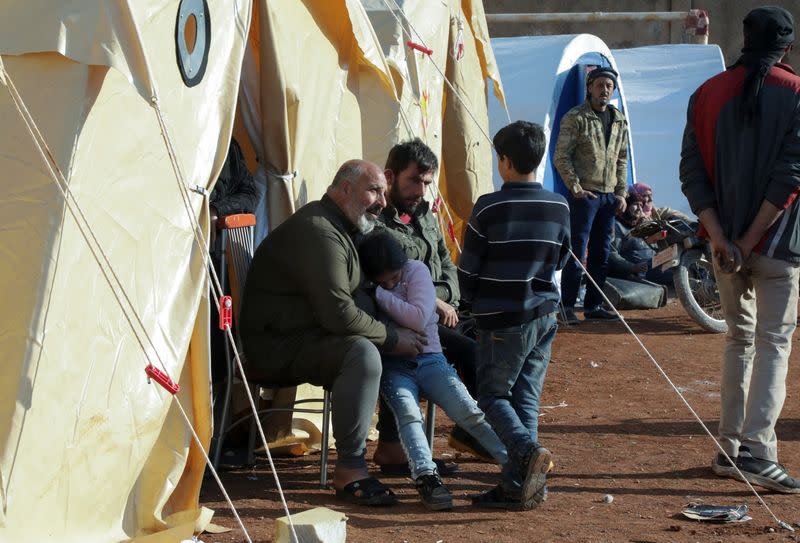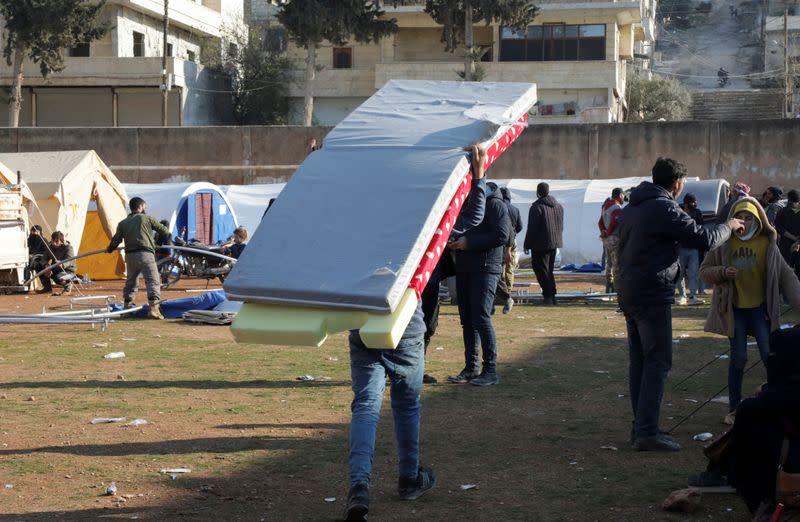Syria quake's displaced join millions already living in tents
By Mahmoud Hassano and Timour Azhari
BEIRUT (Reuters) - Five years ago, Syrian Sabri Al Salameh fled war-torn Homs for Harem, a town near the Turkish border. Now his home there is gone too, destroyed in another catastrophe, this time made by nature rather than man.
Nearly two million Syrians, displaced by battles and government bombing during the country's 11-year war, lived in refugee camps in the rebel-held northwest before last week's huge earthquake.
It struck that part of Syria hardest, and 59-year-old Salameh is one of thousands whose homes were flattened, creating a new wave of displacement that is stretching the country's already-thin humanitarian resources even thinner.
"I lost everything around me, I lost everyone I know in the three buildings that used to be next to me," said Salameh, sitting outside the large tent where he, his wife and six children now live.
"We lost ..neighbours, friends and colleagues."
The quake killed at least 4,400 people in Syria's northwest, leaving millions needing aid, according to the United Nations.
Harem, where homes have become hills of rubble, was the worst-affected town.
Salameh's tent is in a schoolyard, one of dozens of beige and white structures that have sprung up in rows - an all-too familiar sight in a region where the vast majority of Syria's internally displaced live.
Firewood lies stacked in a pile beside newly-hoisted tents while children play, taking turns sliding down a stone slope.
The setup is meant to be temporary, but in this part of Syria many have lived this way for years.
A month before the earthquake struck, the UN's humanitarian coordination agency warned of a crisis in Syria's northwest, saying 1.8 million people were living "trapped" in severely overcrowded camps prone to frequent flooding and fires.
The international aid necessary to build long-term shelter and other infrastructure has been lacking, said Emma Beals, a Syria-focused non-resident fellow at the Middle East Institute in Washington.
She worries that even the tragedy of the earthquake may fail to shock the world into changing that picture.
"Even as early-recovery work expanded in government areas, the response to the conflict in the northwest has not focused on how to make the lives of people in that area liveable," she said.
"Is that going to be allowed to happen again?"
Salameh said he has learned not to expect much.
"The needs of the displaced are known: a tent, food and water. What, do we want homes too? ...Thank God we took refuge in this tent."
(Reporting by Mahmoud Hassano in Idlib and Timour Azhari in Beirut; Writing by Timour Azhari; editing by John Stonestreet)






